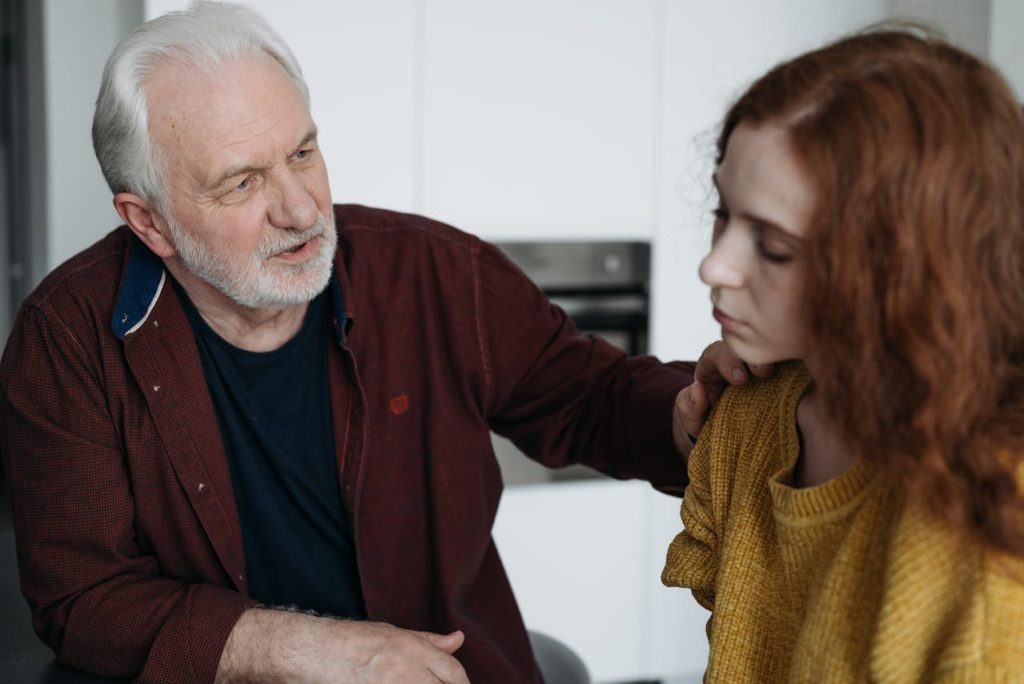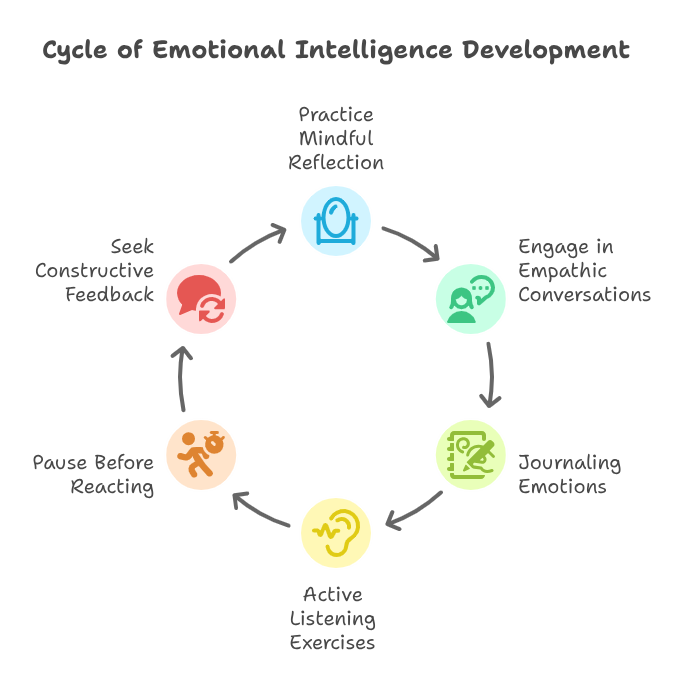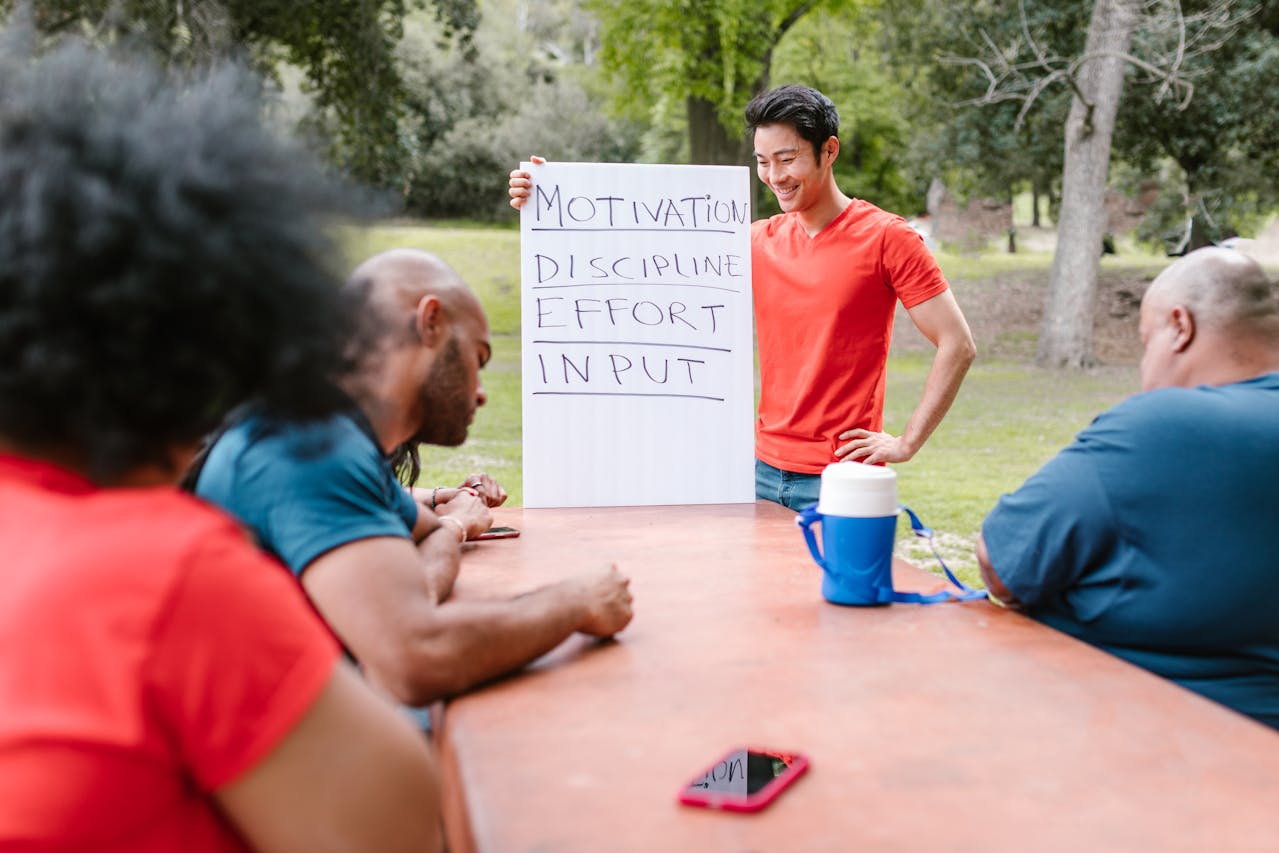Ever met someone who just gets people? They walk into a room and instantly vibe with everyone—calm, aware, and grounded. That’s not magic—that’s emotional intelligence in action.
So, what are the signs of high emotional intelligence in everyday life?
In this article, we’ll unpack what emotional intelligence is, why it matters, how to recognize it, and how to develop it yourself. Ready to upgrade your EQ and unlock powerful social and self-awareness skills? Let’s get started.
What Is High Emotional Intelligence?
High emotional intelligence (EI) is the ability to recognize, understand, and manage your own emotions, while also being able to tune into the feelings of others. It’s not just about controlling your emotions, but about expressing them in healthy and productive ways.
Breaking Down Emotional Intelligence
Think of emotional intelligence (EI) as your brain’s social compass. It’s the ability to recognize, understand, and manage your own emotions, while also tuning into others’ feelings. Sounds simple, right? But in practice, it’s a mix of self-awareness, empathy, regulation, and social skills — all bundled into one powerful toolkit.
Emotional Intelligence vs. IQ
You’ve heard of IQ, the classic measure of intelligence. But here’s the twist: you can be a genius and still fumble in social settings. That’s where EI comes in. Emotional intelligence fills the gap that IQ leaves wide open — how we handle relationships, stress, and emotional conflicts. Want to dig deeper into how emotional intelligence compares to traditional IQ in real-life success?

Why Emotional Intelligence Matters in Real Life
Emotional intelligence is not just a book topic—it’s a powerful real-life skill. EI influences our behavior and decisions when we’re managing relationships, making choices, or dealing with pressure. Whether in personal or professional situations, emotional intelligence makes a big difference in our daily lives. So, I believe that if you’re skilled in emotional intelligence, you’ll be far ahead of others in real life. Let’s explore how that works in relationships, communication, leadership, and beyond.
Relationships and Communication
Imagine two people arguing. One yells, the other listens, pauses, and responds thoughtfully. Guess who’s emotionally intelligent? People high in EI communicate clearly and calmly, often avoiding drama and building stronger connections in both personal and professional life.
Leadership and Decision-Making
Leaders with high EI inspire trust. They don’t just give orders — they understand team dynamics, recognize morale shifts, and manage crises like pros. They know when to push, when to pull back, and how to read the room.
How Do You Know If Someone Has High Emotional Intelligence?
Wondering how to tell if someone truly has high emotional intelligence? You don’t need a psychology degree or an emotional crystal ball to figure it out. In fact, if you’re asking what are the signs of high emotional intelligence, the answers often reveal themselves through small, consistent actions. Emotionally intelligent people respond instead of react. They ask questions that matter. They respect your space and express their own boundaries with calm confidence. They don’t just talk — they listen, really listen.
You’ll notice they’re the ones who can navigate tense situations without losing their cool. They apologize without ego, celebrate others without jealousy, and communicate without leaving you confused. Emotional intelligence isn’t loud — it’s graceful, steady, and felt more than it’s seen.

What Are the Signs of High Emotional Intelligence? 13 Key Traits to Look For
If you’re wondering, What are the signs of high emotional intelligence? Here’s a detailed guide for you. People with high emotional intelligence exhibit clear behaviors that make them easy to recognize. It’s not just about understanding their own emotions—it’s how they manage themselves, show empathy towards others, and stay calm in tough situations that truly define their strength. So, let’s explore the 13 key traits that help you identify someone with high emotional intelligence.
1. Self-Awareness
This is ground zero. People high in EI are deeply in tune with their own emotions. They can label feelings (anger, disappointment, joy) and trace them to triggers. This helps them respond rather than react.
2. Empathy
Empathy is the emotional glue of human connection. Emotionally intelligent people don’t just listen — they feel with others. They’re the ones who truly understand, even when you don’t say a word.
3. Emotional Regulation
Think of EI as your emotional thermostat. Instead of letting feelings boil over, emotionally intelligent individuals cool things down. They pause, breathe, and choose their responses with care.
4. Active Listening
Ever talk to someone who makes you feel heard — really heard? That’s active listening. They maintain eye contact, nod, paraphrase, and ask thoughtful questions. It’s not just polite; it’s powerful.
5. Strong Boundaries
People with high EI know their limits and respect others’. They can say “no” without guilt and “yes” without resentment. It’s all about emotional safety and mutual respect.
6. Constructive Feedback
Feedback isn’t criticism; it’s a gift. High-EI individuals deliver feedback with care, clarity, and kindness. They build others up instead of tearing them down.
7. Adaptability
Life throws curveballs — emotionally intelligent people catch them with grace. They adjust plans, embrace change, and stay mentally flexible without losing their cool.
8. Motivation and Purpose
They’re driven by inner goals, not external validation. Their emotional energy fuels their progress, keeping them resilient and focused through ups and downs.
9. Gratitude and Positivity
Instead of complaining, they count their blessings. Gratitude fuels their optimism, making them magnets for positive energy and people.
10. Conflict Resolution Skills
Rather than avoid conflict or explode, they engage in healthy dialogue. They address issues head-on, seek win-win outcomes, and maintain respect throughout.
11. Self-Control in Stressful Moments
When stress hits, they don’t unravel. They stay composed, weigh options, and act from a place of calm rather than chaos.
12. Non-Verbal Communication Awareness
A raised eyebrow, a shift in tone — emotionally intelligent folks notice these micro-signals. They read body language like a book, often catching what’s not being said.
13. Accountability
They own their mistakes. No excuses, no finger-pointing. Accountability builds trust — and they know it.

6 Ways to Develop Higher Emotional Intelligence
Do you want to increase your emotional intelligence and navigate life’s ups and downs with greater ease? The good news is, emotional intelligence isn’t a fixed trait or something only experts possess — anyone can develop it with the right habit-building techniques. So far, we’ve explored how to recognize people with high emotional intelligence. Now, it’s time to shift focus inward: how can you develop higher emotional intelligence? The answer lies in practicing 6 simple yet powerful daily habits that help you build emotional awareness, regulation, and empathy — all key to mastering your.
Practice Mindful Reflection
Spend 10 minutes a day checking in with yourself. Ask: “What am I feeling? Why?” This habit builds emotional vocabulary and awareness.
Engage in Empathic Conversations
Put yourself in others’ shoes. Ask open-ended questions, listen without interrupting, and imagine their perspective before responding.
Journaling Your Emotions
Writing helps you untangle complex feelings. A simple habit of journaling daily emotions can reveal patterns and promote growth.
Active Listening Exercises
Challenge yourself: have a conversation where you don’t talk about yourself at all. Just listen. It’s tougher than it sounds — and super effective.
Learn to Pause Before Reacting
When emotions spike, take a beat. That pause is the secret weapon of emotional regulation — it gives you space to choose your response.
Seek Constructive Feedback
Ask people you trust for honest input about your emotional responses. Use it as fuel, not fire. Growth lives here.
What Are the Top 5 Features of Emotional Intelligence?
Do you want to know what the main characteristics of emotional intelligence are? If you’re curious about “what are the top 5 characteristics of emotional intelligence,” you’re not alone—I’m with you. Although it may sound complicated, emotional intelligence is essentially made up of a few key traits. That’s why I believe we should all take a moment to think about this and understand what these main characteristics are. Let’s find out the top 5 characteristics of emotional intelligence that make a person truly emotionally aware and balanced.
1.Self-Awareness – Understanding your feelings and how they affect actions.
2.Self-Regulation – Managing your emotional responses.
5.Motivation – Being driven by purpose, not pressure.
6.Empathy – Connecting with others on a deeper level.
7.Social Skills – Navigating social situations with ease and tact.
All in all of this article
So, what are the signs of high emotional intelligence? It’s not just one thing — it’s a rich blend of self-awareness, empathy, control, and connection. Emotional intelligence is a skill you can build, a lens you can sharpen, and a secret superpower in today’s fast-paced world. Whether you’re aiming to become a better leader, partner, or friend, developing your EI might just be your best investment.
How did you like this article? I hope you enjoyed it. If you did, please share it on your social media so your friends can read it too.
Frequently Asked Questions (FAQs)
1.What is high emotional intelligence?
It’s the ability to understand and manage your own emotions while also recognizing and influencing others’ emotions.
2.How do you know if someone has high emotional intelligence?
Look for signs like empathy, calm under pressure, good listening, and strong boundaries.
3.What are the top 5 features of emotional intelligence?
Self-awareness, self-regulation, motivation, empathy, and social skills.
4.Is emotional intelligence more important than IQ?
In many real-life situations — absolutely. Especially in relationships, leadership, and teamwork.
5.Can emotional intelligence be learned?
Yes! Through practice, reflection, and feedback.
6.What are 13 signs of high emotional intelligence?
They include empathy, emotional regulation, accountability, gratitude, and more — check our list above.
7.How can I increase my emotional intelligence?
Start by reflecting daily, practicing empathy, and improving your listening skills.
8.Are emotionally intelligent people happier?
Generally, yes. They handle stress better and have stronger relationships.
9.Can emotional intelligence help in the workplace?
Definitely. It boosts communication, collaboration, and leadership.
10.What are some daily habits to build EI?
Journaling, mindful breathing, and active listening are great starters.
11. Can low EI be improved in adulthood?
Yes. Unlike IQ, EI is flexible and trainable.

